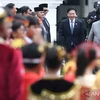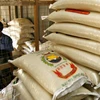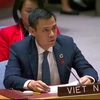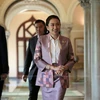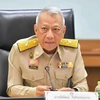Bangkok (VNA) – Thai Prime Minister Srettha Thavisin unveiled a "Thailand Vision 2030" on March 1, with a commitment to promoting the country into a regional aviation hub by 2030, which can handle more than 150 million international passengers each year.
In his speech broadcast live on state television channel NBT and social media platforms, Srettha shared his belief that Thailand has what it takes to become a hub connecting air travel throughout the Asia-Pacific, and rising to among the top 10 air logistics and distribution centres in the world.
The Thai government plans to develop Thailand's airports to return to the top 20 in the world within the next five years, especially six airports under the management of the Airports of Thailand Public Company Limited (AOT), namely Suvarnabhumi, Don Mueang, Chiang Mai, Mae Fah Luang - Chiang Rai, Phuket, and Hat Yai.
This plan includes renovating and expanding existing airports and building new airports to increase passenger and cargo receiving capacity. In addition, the government also plans to build a large shopping centre near airports to attract tourists, and to connect airports with the mass transportation system (SRT - Red Line train) to provide faster access to cities for passengers.
The government and the AOT are already working on projects to increase the capacity of the 20,000-rai Suvarnabhumi Airport to 150 million passengers per year within 2030, he said
The government will elevate all airports nationwide by integrating modern technologies and enhancing passenger services to improve efficiency, convenience, and service delivery speed, he went on.
Efforts will be made to strengthen cooperation with numerous airlines, tourism agencies, and hotel associations to jointly develop the Thai aviation industry, he stated, adding that sustainability will be promoted through the use of sustainable aviation fuel (SAF) and environmentally friendly packaging, he stressed./.
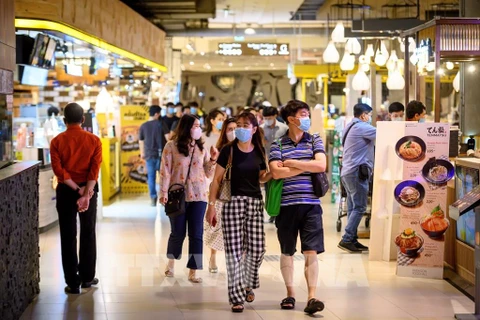
Thailand’s economy on track for recovery: FPO
Thailand’s economic figures in January showed signs of recovery with a rebound evident in tourism, consumption, and exports, though private investments have slowed down, the country’s Fiscal Policy Office (FPO) said.







